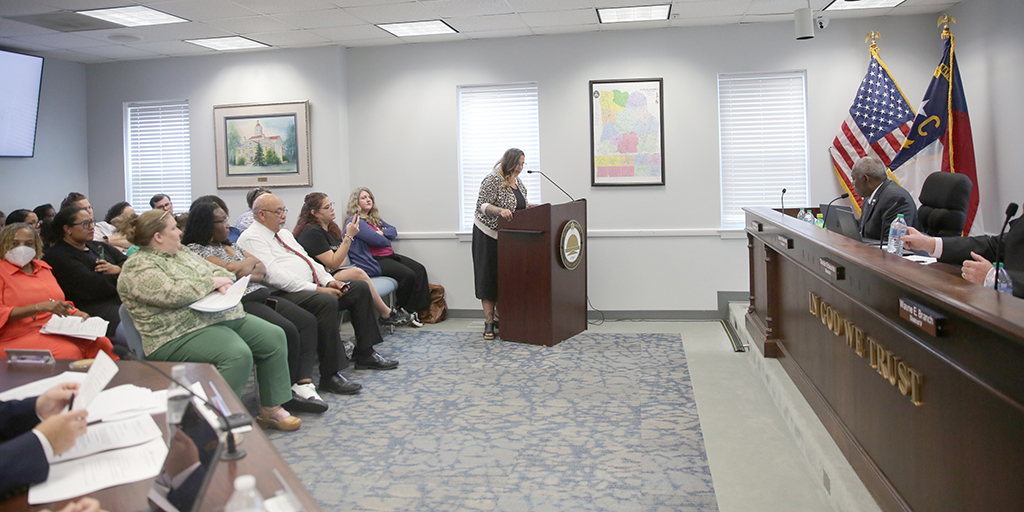Mount Olive is at the center of a major municipal scandal, as a sweeping state audit exposed years of financial mismanagement, fraud and oversight failures that have cost the town hundreds of thousands of dollars and eroded public trust. The North Carolina Office of the State Auditor (OSA) uncovered alarming practices involving the Mount Olive Municipal Airport and the Water Department, including fraudulent fee waivers, mismanaged contracts, and unauthorized spending. The investigation began after misconduct allegations were reported via the State Auditor Tipline.
“The town is taking this seriously,” Interim Town Manager Glenn Holland told Duplin Journal. “We are looking in and doing reviews of all the financial records and accounts. But outside of that, I can’t comment because it is an ongoing investigation.”
Airport fuel and contract failures raise red flags
At Mount Olive Municipal Airport, investigators identified serious issues with aviation fuel management and contractual compliance.
Prior to the audit, there was no written agreement between airport operator Mike Bass and the town regarding the commission rate for fuel transactions. Following the investigation, an addendum confirming a verbal agreement was signed, establishing that Bass would receive 30% of fuel profits, while the town would keep 70%. Investigators also discovered that fuel purchases, which were Bass responsibility, were charged to the town’s bank account, despite the town not being part of the fuel provider’s contract.
“It is unclear why and how a town bank account is being debited for fuel purchases,” stated the report, further noting that someone outside the town improperly authorized fuel purchases. Also, payment processes for customers lacked internal controls. Customers who did not pay by credit card were allowed to receive fuel on credit, with invoices sent informally by email to the town clerk. These transactions were not entered into the town’s accounting system.
Additionally, Finance Director Jamie Butler did not verify fuel commission invoices. According to investigators, after interviewing Butler, they believed she “did not fully understand the supporting documentation and did not have a process to confirm the invoiced amount was accurate.”
A review of fuel sales commissions for 2024 indicated that the town paid the operator a commission rate of 31%.
According to the report, “OSA is reasonably assured that the 1% difference occurred due to timing differences in accounting reconciliation.”
More troubling was the town’s failure to record commission checks properly. Of the 10 checks issued to Bass in 2024, only three were recorded in the accounting system by the end of the year.
“The Finance Director’s failure to record checks in the town’s accounting system put the town at risk of fraud and/or embezzlement,” the report warned.
In response, the town plans to clarify fuel purchasing and commission responsibilities through a new contract with the airport operator. Holland stated that the town will implement monthly reconciliations of fuel commissions signed off by both parties and reviewed by the finance officer and town manager. Additionally, semiannual reports detailing revenue, expenses, inventory and commissions will be required going forward. The town has also decided to stop paying for fuel, transferring the responsibility for purchases back to the operator.
Holland told Duplin Journal that they plan to “make sure that the contract is followed to the letter.”
Unpaid services and unverified charges
The investigation also revealed that the town continued to pay for airport Wi-Fi and telephone services, expenses contractually assigned to Bass between 2017 and 2024.
Although the town received $300 per month in Wi-Fi reimbursement from January to September 2024, it failed to consistently pay its internet provider due to a dispute. The report states that Butler reported the town issued a $10,000 lump sum payment in September; however, records from the internet service provider during the investigation show this payment was not applied to the town’s account.
Phone records were similarly murky. Of the seven phone lines billed to the town, only two could be traced back to airport operations. The remaining five lines and various unexplained charges could not be accounted for by either Butler or Bass.
In response to the audit, the town has committed to a full review of all Wi-Fi and telephone invoices since the contract began in 2017. Holland stated the town will seek reimbursement from Bass for costs outside the town’s responsibility. The town has discontinued Wi-Fi service at the airport and terminated all unverified phone lines. A revised contract is being drafted to clearly outline fiscal responsibilities, with oversight measures to ensure compliance. Holland projects full implementation of corrective actions by Dec. 30.
Water Department audit exposes fraud and over $210K in losses
The investigation also uncovered a culture of misconduct and gross negligence within the Mount Olive Water Department, resulting in a confirmed loss of $210,837 in utility revenue and evidence of fraud involving town employees.
Among the most serious findings were the actions of Water Department staff who repeatedly abused their positions for personal gain. The department’s supervisor and billing clerk, Watia Best and Rashonte Pettit, routinely voided their cutoff fees while continuing to receive uninterrupted water service. The supervisor erased her fees in 11 out of 12 months, and the billing clerk did the same in 9 out of 12 months. These employees were suspended in January 2025 and ultimately fired in March following the results of the investigation.
Investigators determined that from April to May 2024 alone, the employees voided hundreds of fees without proper documentation, a practice attributed to both intentional misconduct and the town’s lack of internal controls.
Delreese Simmons, a sitting town commissioner who is running for reelection, had his water cutoff fee waived nine times in 2024.
According to the report, “The commissioner did not make a single payment on his utility bill until August 2024 – when OSA received the allegation – at which point his outstanding balance was $942.”
Billing errors cost the town thousands
In addition to misconduct, the audit revealed critical billing errors stemming from improperly implemented rate increases. In 2023 and 2024, commercial water rates approved by the town board were entered incorrectly into the billing system, with minimum and maximum usage rates set identically.
As a result, commercial customers were billed only a flat base charge, regardless of their water consumption.
Businesses that should have paid over $1,000 a month were charged an average of $17. This mistake persisted until March, at which point efforts to correct the errors led to gross overcharges.
The OSA concluded that if proper review procedures had been in place, such critical mistakes could have been prevented. Overall, the town lost $210,837 in revenue due to these missteps, further straining municipal finances.
The town has agreed with the OSA’s findings. Moving forward, the finance officer will assume responsibility for forwarding rate tables to the billing software vendor and verifying updates. There will be no access to rate tables by water billing employees.
Only the Water Billing Supervisor will have access to void fees, and every void will require written justification, which will be reviewed and approved monthly by the finance officer. Town manager approval will be required for any voided fee needed for a town employee, town commissioner or vendor. The town also plans to pursue collection of outstanding balances and update its utility billing policies.
“A recommendation will be presented to the town board to pursue the collection of outstanding balance of all inactive accounts, including the accounts referenced in the Audit Report. It is also recommended that voided fees, including disconnect fees and late fees, be collected on the accounts referenced in the Audit Report as well as all other accounts that can be justified.”
Additionally, a rate study by the North Carolina Rural Water Authority is underway to help ensure that future rates are appropriately set and implemented.
A spokesperson from the State Auditor’s Office told Duplin Journal that the State Auditor is required to report to law enforcement information that may be evidence of criminal misconduct. Also OSA will be following up to check on the implementation of the recommended corrective actions.
As of press time, Buttler and Simmons did not respond to Duplin Journal’s request for comment.
To report alleged incidents of fraud, waste or abuse in state government contact the Office of the State Auditor’s Tipline 1-800-730-8477 or visit auditor.nc.gov/about-us/state-auditors-tipline.
 Twitter
Twitter Facebook
Facebook Instagram
Instagram







